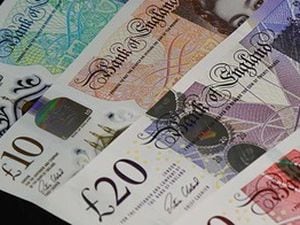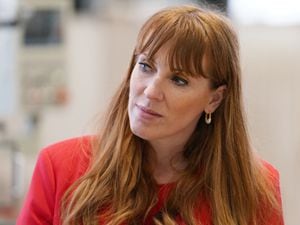Peter Rhodes on cronies, contacts and the post-lockdown arrival of the £5 pint
I spotted something in the garden, writhing like a tormented rat. It turned out to be two wrens, locked together in a savage wrestling match, each trying to kill the other. Apparently, it's a seasonal thing. Somehow, you don't expect that sort of behaviour from wrens. They always look so sober and hard-working but inside every drab little wren is the heart of an eagle. Thought for the day.

The new normal emerges. For me, it took the form of a pie and a pint on a pub balcony with a couple of old pals. This is how it used to be and will be again as the simple pleasures denied by lockdown are revived and relished.
I know what you're thinking. After some dire reports about pubs hiking the price of booze, you're expecting a horror tale of a beer-ripoff. It is reported that some breweries are telling struggling pubs to “sneak” prices up by 40p a pint to claw back losses. The alleged result of this sneakery is the price of a pint rapidly approaching a fiver.
And it's not just beer. My first post-lockdown haircut was £11 – a big jump from the pre-lockdown price of £7. But then you can't put a price on the first haircut in a year that didn't involve kitchen scissors, snagging, uneven sideboards and unkempt, sticky-out bits.
I expect there will be some price-hiking by shops, pubs and other establishments but if that's what it takes to get Britain's battered service economy back on its feet, I suspect many customers will pay up willingly. After all, half the population has done well out of lockdown.
According to the Bank of England, more than £140 billion in “excess savings” has been stashed away over the past year by Brits with a regular income and nowhere to spend it. It is time to share the money out. If prices rise, consider it an unofficial, and voluntary, form of income tax.
I never rated Tony Blair much when he was in power but of late he's said some sensible things about Covid and, a few days ago, he refused to be whipped into indignation at the news that Boris Johnson's mobile phone has a hotline to James Dyson. Blair is a pragmatist and I daresay his mobile number is on the smartphones of the world's movers and shakers.
The way politics works makes it likely that the average Tory minister's mobile-number list will include bankers, entrepreneurs, hedge-fund managers, minor Saudi princes, billionaire industrialists, slightly-dodgy financiers and the World Bank. In contrast, the average dedicated, hard-working Opposition MP's mobile phone may have the numbers for Amnesty International, CND and a couple of food banks, and they'll never be accused of croneyism.
But who will they ring when they need a million face masks in a hurry? Contacts are good, cronies are bad. But sometimes, until catastrophe come knocking, you don't know which is which.





